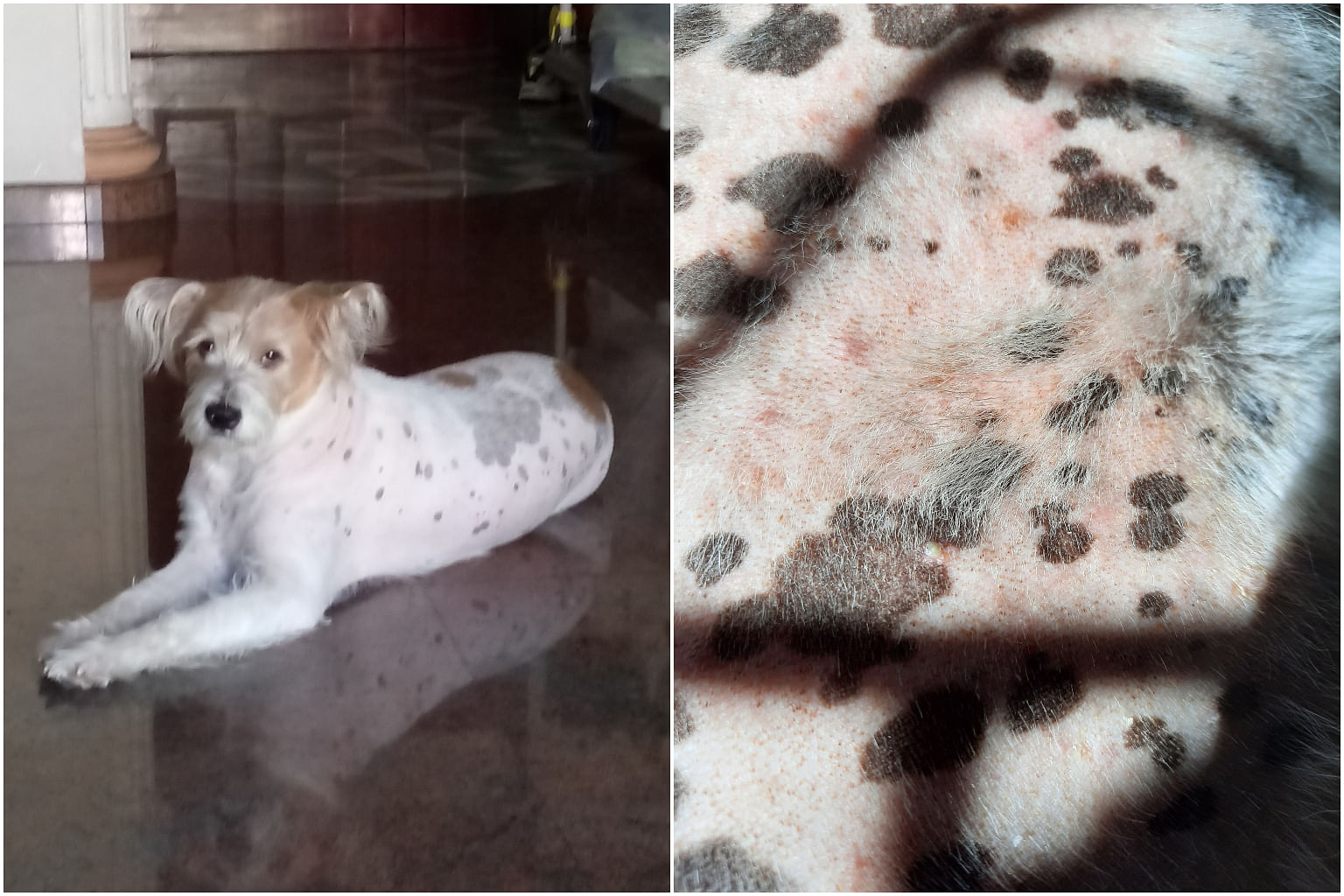SINGAPORE - In this fortnightly column, veterinarians from the National Parks Board answer questions about pet health and behaviour.
Pomeranian licks urine traces
Our pomeranian Jacky is two years old this month and seems healthy. We walk him thrice a day at a nearby park. I have noticed he tends to lick urine traces off the ground, leaves or lamp post left behind by other dogs. Sometimes, after he has urinated, he licks his own urine from surfaces. I know animals use their urine to mark territories. Is this a normal habit? Should I discourage it? I am worried he might contract diseases, especially from the urine of other dogs.
Jason Ng
While the exact cause of urine licking is unknown, there is a longstanding theory that since dogs primarily use their sense of smell and taste to explore their surroundings, licking other dogs' urine may be a way for them to better perceive their environment.
Urine licking can result in some diseases such as leptospirosis, which affects dogs and can be transmitted via infected urine.
Infection in dogs can occur when their mucous membranes or wounded skin, such as from a cut or scrape, come into contact with infected urine.
It is unlikely Jacky will become sick from licking the urine of other dogs if he has been receiving regular preventative healthcare, such as being up-to-date with vaccinations and parasite control.
But it is best to prevent him from licking the urine of other dogs if he is sick or has a compromised immune system.
Dog has persistent rash problem

My dog is about five years old and a sort of mixed breed. I have had him since he was three months old. I found him in the forest around Lim Chu Kang. Since then, he has been chipped and medically attended to. He has a regular diet of canned chicken, beef and plain rice. In the past few months, he has developed severe rashes and seen the vet twice without much improvements. The vet had first prescribed 500mg Clavamox and 20mg Prednisolone. During the most recent visit, he was prescribed 26mg Apoguel, a tube of Combiderm and a bottle of medicated shampoo. What is wrong with him and what can I do?
Piarah S. Bhangi
Redness of the skin is a common sign of skin inflammation. Some of the more common causes are attributed to parasites, bacterial or fungal infection, irritation and food and environmental allergies.
Causes can be varied, so a step-by-step procedure to diagnose the root cause is necessary.Multiple follow-up visits to your vet may be required to identify the problem.
You should follow up with the same vet or clinic as your pet's medical and treatment history is crucial in getting to the root of the problem.
Apart from identifying the cause, your vet will also dispense suitable medications needed for treatment, and advise you on ways to alleviate the itch as well as how to reduce the recurrence of such problems.
In the meantime, stop your dog from licking and biting the area, which will reduce further irritation to the skin.
The Elizabethan collar, also called E-collar, buster collar or cone collar, is a helpful way of doing this and can be cleaned if needed.
Answers by Dr Shawn Chia, a veterinarian at the Animal & Veterinary Service. He has owned a dog, a bird and fish.
Write in
Have a query about your pet? E-mail it with clear, high-resolution pictures of at least 1MB, if any, and your full name to stlife@sph.com.sg. We reserve the right to edit and reject questions.

